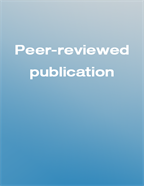
Our work with Australia
The World Health Organization (WHO) was established on 7 April 1948 with an ambitious goal – ensure the highest attainable level of health for all people.
More than 7000 WHO staff members all over the world collaborate with governments and other partners to build a healthier world. WHO operates as an independent specialized
agency of the United Nations.
WHO assists countries in building robust national health
systems and in preparing for and responding to emergencies. We lead the fight against noncommunicable diseases (NCDs), such as heart disease, cancer and diabetes that cause millions of premature deaths every year.
WHO Country Cooperation Strategy 2018-2022: Australia
Australia-WHO Country Cooperation Strategy 2018-2022
The Australia–WHO Country Cooperation Strategy 2018–2022 sets out a joint vision for the collaborative work of the Australian Government Department of Health and WHO from 2018 to 2022. Australia and WHO have a longstanding relationship, sharing expertise across a wide range of health issues.
Building on an already exceptionally strong relationship, and in the context of the 2030 Sustainable Development Agenda, this Strategy provides a platform at the regional level to further strengthen and guide collaborative efforts to improve health in the Western Pacific Region and beyond in the next five years. This collaboration is underpinned by three key foundations of cooperation: first, WHO contributes to the health of all Australians; second, Australia, facilitated by WHO, contributes to addressing health priorities in the Region and globally, and; third, Australia and WHO work in partnership to promote better health.
National strengths and priorities for health
The Australia Government is committed to ensuring Australians continue to have access to a world-class health system well into the future through a long-term national health plan built on the foundation of UHC, support for hospitals, a priority on preventive health and mental health, and investments in medical research.
The Australian Government is committed to the 2030 Agenda for Sustainable Development and the SDGs. Achieving the 2030 Agenda will contribute towards lasting national, regional and global prosperity, productivity and stability, benefitting Australia and the Region.
Strategic agenda for cooperation
The Australian Government Department of Health and WHO are jointly committed to this strategic agenda for cooperation, underpinned by the three foundations for cooperation and guided by four strategic priorities.
Publications
All →Report of the Regional Director : the work of WHO in the Western Pacific Region, 1 July 2022 - 30 June...
Covering the period from July 2022 to June 2023, this Report highlights how WHO in the Western Pacific Region has worked to turn the hard lessons of the...
Report of the Regional Director : the work of WHO in the Western Pacific Region, 1 July 2021 - 30 June...
This report, covering the period from July 2021 to June 2022, highlights how WHO continued supporting countries and areas in the Western Pacific Region...
Report of the Regional Director : the work of WHO in the Western Pacific Region, 1 July 2020 - 30 June...
Member States in the World Health Organization Western Pacific Region unanimously adopted For the Future: Towards the Healthiest and Safest Region...
Report of the Regional Director : the work of WHO in the Western Pacific Region, 1 July 2019 - 30 June...
Covering the period from July 2019 to June 2020, this Report highlights how WHO in the Western Pacific Region has been responding to the largest, most...
Harm to others from drinking: patterns in nine societies
The adverse consequences of alcohol consumption include the negative consequences of drinking on individuals other than the drinkers themselves, including...
All countries with a WHO office have a Country Cooperation Strategy (CCS). CCSs are flexible to align with the national health planning cycle (generally...
WHO Country Cooperation Strategy 2018-2022: Australia
The Country Cooperation Strategy (CCS) is WHO’s strategic framework to guide the Organization’s work in and with a country. It responds to...
In 2012, Australia became the first country to implement laws requiring plain (standardized) packaging of tobacco products. Since then, France, Ireland...

Buruli Ulcer (BU) is a necrotizing skin infection caused by the environmental organism Mycobacterium ulcerans. Despite an unknown mode of transmission,...

Successful outcomes with oral Fluoroquinolones combined with Rifampicin in the treatment of Mycobacterium...
Buruli ulcer is a necrotizing infection of skin and subcutaneous tissue caused by Mycobacterium ulcerans and is the third most common mycobacterial...


